Rae Armantrout is one of the most relevant poetic voices in the U.S. nowadays. Born in Vallejo, California, in 1947 in a working-class environment, she graduated in creative writing at the University of Berkeley in 1978. There she became involved in the “Language Poets” movement, under whose influence she started her career as a poet. She has published more than a dozen poetry books, starting in 1978 with Extremities until her latest book, Money Shot, published in 2011. In 2010 she was awarded the prestigious Pulitzer Prize for her work Versed, praised for its way of “holding meaning (and identification) in uneasy suspension”. She has also won the National Book Critics Circle Award in 2009, and was finalist for the National Book Award in the same year. At present she lives in San Diego and teaches Poetry at the University of California. So far she has only been translated to German, although we expect to see a selection of her poems translated into Spanish soon.
Rae, you have very often shown yourself suspicious of labels and generalizations, but I would like you to comment briefly on your involvement with the “Language Poets”: what you did or pursued, who were your poet-fellows at that time, if you still keep contact or affinities with them…
San Francisco and New York were the birthplaces of Language Writing (or Language Poetry). I lived in San Francisco from 1972-1978 as the movement was taking shape. While I was there I developed friendships with Ron Silliman, Lyn Hejinian, Bob Perelman, Kit Robinson, Steve Benson, Barrett Watten, Carla Harryman, Tom Mandel, and Ted Pearson – the people who became the west coast Language poets. Ron was already there when I arrived and Barry came soon after. They were both influenced by the minimalist poetics of the slightly older Robert Grenier. In fact, Barry and Bob Grenier began This magazine, which was (along with Ron Silliman’s Tottel’s) one of the first magazine to publish Language Poetry. I was something of a minimalist in those early days too. Some might say I still am. But my influence wasn’t Bob Grenier so much as the early William Carlos Williams and even Basho. As the group coalesced, it began to articulate a resistance to the speech based, presence based poetics of predecessors such as Charles Olson, Robert Creeley, Allen Ginsberg, etc. and to emphasize a focus on textuality. This was several years before we were aware of Derrida and post-structualism, but when post-structuralist ideas did become widely available in the U.S., they reinforced Language Writing’s move toward textuality.
Over the years, the early tendency towards minimalism was largely abandoned and poets such as Ron Silliman and Lyn Hejinian started writing long, non-linear prose poems in which the sentences were relatively independent from one another while maintaining an overall aesthetic cohesion. I didn’t move in that direction. My poems continued to look more or less like lyric poems, albeit less linear, more full of gaps and jarring juxtapositions. I am still in touch with all of those people to one degree or another. For one thing, we recently wrote a long (ten volume) collaborative work called The Grand Piano. It was named for the coffee house where several of us ran a poetry reading series. You’re right that I don’t like being expected to conform to any “party line,” but I continue to respect the writers associated with Language Poetry and to be interested in their work.
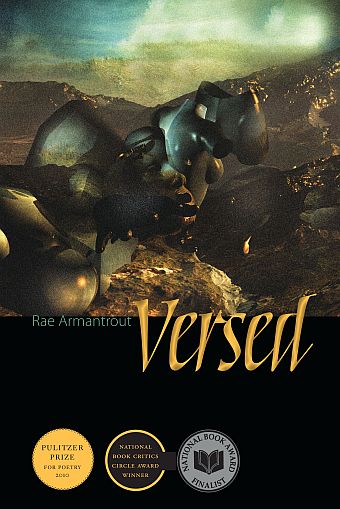 Your 2010 Pulitzer awarded book, Versed, seemed unexpected for an award usually granted to ‘mainstream’ writers, and I admit that ‘mainstream’ is a tricky term here, the same as its opposite, ‘marginal’. But how do you see yourself within this circumstance?
Your 2010 Pulitzer awarded book, Versed, seemed unexpected for an award usually granted to ‘mainstream’ writers, and I admit that ‘mainstream’ is a tricky term here, the same as its opposite, ‘marginal’. But how do you see yourself within this circumstance?
Mainstream poetry used to be poetry that invited empathy with a speaker narrating his or her circumstances. The circumstances might be difficult, but the poem would ultimately offer some affirmation of familiar humanistic values. So, not surprisingly, mainstream poetry was a lot like a Steven Spielberg movie. I’m oversimplifying for effect, perhaps, there’s some truth to what I’m saying. And I suppose such poetry will always be popular. But it bored me. And now I think it bores a lot of people. We are used to being spoon fed by the media; we don’t want to be spoon fed by art as well. It used to be that more challenging poetry, in general, was published by small, independent presses. Even the university presses wouldn’t touch it. The large circulation magazines wouldn’t touch it. It was distributed and read (mainly by other poets) within various publishing and writing communities. I noticed a change around 10 to 15 years ago, I guess. University presses started publishing more challenging poets. And, of course, the internet helped people find out about those books. There is a lot of book reviewing online. Then, too, poets of all stripes became professors and started exposing students to a wider variety of work. For all these reasons, the existence of one dominant paradigm, one mainstream, became less tenable. Keith Waldrop, who has written beautiful poetry in relative obscurity for many decades, won the National Book Award two years ago. I was certainly surprised when I won the Pulitzer, but I see it as part of a larger trend.
Again about Versed. The poems from this book, the same as in the rest of your work, seek for conscious emotional detachment, stay away from the Romantic ‘spontaneous overflow of feeling’. However, at the time of writing them, you were undergoing serious illness. How is biographical fact reflected in the poems?
This is a complex question. First I would like to say that I think all my poems, ultimately, arise from emotion. If something doesn’t trouble me, I don’t write about it. I mean that in broadest sense. Even beauty can be troubling, after all. Sometimes I am troubled by the stupidity of the television news or the popular media, but sometimes I am troubled by the beauty of a sunset. To have an experience which you can’t articulate is troubling to me. I think that’s why I write. So, of course, the prospect of death is especially troubling. The fact is that I was quite aware of the prospect of death before my illness and it is still on my mind. However, knowing you have cancer gives the subject an added urgency! What troubles me (and maybe all of us) as we face death is the mismatch between our personal aspirations, our sense of our own importance, and the implacable reality of extinction. There is a conflict, in other words, between the subjective and objective. That is what’s troubling. So – if I only wrote about the subjective with the “spontaneous overflow of feeling” you talk about, I wouldn’t be conveying the full situation. I think the separation of thought and feeling is artificial. Thoughts provoke feelings in me and feelings provoke thoughts. It must be true for others as well. I know I am not wired to make a distinction between intellect and emotion.
When I was diagnosed with cancer, of course, I felt dread. But, buried somewhere in the dread, I also felt a little bit of excitement. I was having new experiences. I was traveling (or thought I was) towards totally new and strange states, however terrible they might turn out to be. How often does that happen to someone at the age of 59 (my age at the time)? I resolved to go as far as I could into “the valley of death” as a conscious thinking being.
And then I didn’t die.
You have defined your own poetry as a sort of ‘Cheshire Poetics.’ Could you explain this for your Spanish would-be readers?
The Cheshire Cat is a character in Alice in Wonderland by Lewis Carrol. When Alice asks the cat for direction, it points in both directions and then vanishes into thin air. I meant that my poetry tends to move in two directions at once, outward and inward – or at least that is my goal. I’m interested in the world and I’m interested in the language with which we describe the world. I’m interested in what we know (or think we know) and in how we know it. I want to tell the truth and I’m not sure it’s possible to know or tell the truth. My doubt and faith are equally balanced. That doesn’t mean I stop trying.
You acknowledge Emily Dickinson and William Carlos Williams as clear influences on your work within the American tradition. What did you learn from them?
I discovered Williams early – when I was about 15. From him I learned that poems can sound good without having regular meter and rhyme. I also learned that line break can be used to create suspense or emphasis or double meaning. I was taken by the quality of his attention to the phenomenal world, especially to plant life. And I was encouraged by Dickinson’s boldness. She wrote poems challenging conventional theology. This was a very shocking thing for a 19th century woman to do, especially in New England. I admire the way she twists words to get the maximum meaning from them. She puts words together that you will never see side by side anywhere else. For instance, one of my favorite of her poems begins, A narrow Fellow in the Grass. The words narrow and fellow will never sit next to each other except in this poem. There is something slightly spooky about their combination. “Fellow” connotes friendly feeling while “narrow” suggests danger, as in “That was a narrow escape.” A fellow might be slender; but a fellow would never normally be “narrow.” So we’re put on alert. (It turns out she is describing a snake, but it takes the reader a while to be certain of that.) I admire the way she is able to invoke the uncanny.
And which poets outside the U.S., classical or modern, belong to your poetic baggage?
When I was first in college, I discovered the Japanese poets Basho and Issa. They reinforced my minimalist tendencies. In some of my early poems, like View, you can see that influence, I think. And I love the prose poems of the French poet Francis Ponge. He has one book all about soap, trying to get at the slippery essence (or non-essence) of soap. In that book, he rewrites the same poem over and over. It’s pretty amazing. He is the opposite of Basho, in a way. Ponge is excessive; he can’t stop. I love his word play. I am interested in the work of the contemporary Mexican poet and fiction writer Heriberto Yépez. And I just recently discovered a Mexican poet named Pura Lopez Colome whom I think I might like. But it’s too soon to tell whether she will be important to me.
Let’s talk about the metaphor. Your cautious attitude towards it, your determination of not being entrapped by poetic clichés and assumptions associated to it…
I’m ambivalent about metaphor. It’s not something we can escape! All of us think metaphorically. We think by discovering that A reminds us of B. It’s a short step from there to A is B. That can be problematic. But, in fact, my poems are full of metaphors. Sometimes I write metaphors about metaphor. My poem Integer contains the following lines: “Metaphor/is ritual sacrifice.//It kills the look-alike.” That critiques metaphor by means of a metaphor. We all live inside metaphor. That’s what it is to be human. But it helps to be aware of it.
Condensation, juxtaposition, parataxis, profusion of inner voices mixed with outer stimuli, conflicting elements, irony and detachment, meta-commentary, unexpected turns and ends, all these are features of your short-lined, apparently simple poems. Don’t you fear that they become unintelligible for the reader? In other words, are you consciously running the risk of complete absence of meaning, a risk also present in American poets of different background, like Louis Zukofsky or Rachel Blau Duplessis?
It’s difficult to imagine a poem with all the characteristics you list above as “simple!”
Anyway, I think it is probably impossible to achieve “the complete absence of meaning” if you are using words. But it’s true that a reader may wonder if I mean what I appear to mean, and to what extent. What if a line means more than one thing? Does it mean them both? Do I? How seriously? How many voices might be speaking in a poem? Which of them, if any, can be trusted? Perhaps my poems run the risk of being confusing. And I don’t want that. I work to avoid it. It’s one thing to create a mystery, as Dickinson does. It’s another to create confusion. I like to bring different discourses, different aspects of thought and experience, into contact with one another. That can create a lot of friction, but, for a poem to work, there has to be some sort of cohesion. Sometimes that cohesion can be intellectual, but in other cases in might be tonal or sonic.
In spite of the difficulties and challenges of your poetry, it is usually praised for its anti-sentimentalist sense of humor and its ‘realism’ – again, a tricky word –. Both characteristics apply, to a great extent, to American poetry, especially after Modernism. Would you affirm that they are ‘genuine’ American features as opposed, for example, to other poetry world currents more attached to, let’s say, academic, ‘highbrow’ traditions?
Well, that is tricky. My sort of poetry, if there is such a thing, has actually been accused of being academic and highbrow precisely because it has some of the attributes you mention in your previous question: radical juxtaposition, irony, etc. I think something is “realistic” when it manages to resist ideology. I am interested in the Lacanian real, that which can only be realized as a violent rupture, something that breaks through the surface of the imaginary cultural world. Perhaps that is the reason for the interruptions in my poem; they try to force open space for the “real” in that sense? Poetry can soothe us or it can keep us on our toes. I’m obviously more interested in the latter. As for humor, I think people laugh when they are surprised. To a certain extent they laugh, nervously, when they feel threatened. So humor is, paradoxically, a very serious thing.
This question rises from my own reading of your poems. Under their apparent detachment, their empirical reluctance towards anything that is not ‘down-to-earth’ – the ‘no ideas but in things’ adage from Williams –, I find a somewhat old longing for the old words that defined poetry, and that lay at the farthest extreme from materiality: transcendence, expression of the ineffable. I am thinking, for example, of the poem “Hoop”, from Versed, whose first lines are: “God twirled / across the face of / what cannot be named / since it was not moving.” Is this, would you say, the only way of dealing with ‘eternal truths’, that is, in an allusive, indirect, ‘tell it slant’ manner?
I think you’re correct. I was raised in a religious family. As I grew up, I grew out of my parents’ religion. But I am still interested in the big questions – the questions raised by both religion and physics. What is the ultimate nature of reality? Where did we come from? Etc. I think poetry is like prayer for agnostics. (Of course, as you’ll notice, that is a metaphor.) In both poems and prayers we talk to something we can’t see, something that doesn’t immediately answer. (Of course we can construe a subsequent event as the answer to our prayer, but that is an act of selective interpretation.) Both prayers and poems ritualize language and thus produce a degree of satisfaction.. Experience feels somehow incomplete to me. I sense that it feels that way to most other people as well. That could be what’s worst or best about humans. We always think there must be something more, something else. That’s why my poems sometimes end suddenly, perhaps without punctuation, certainly without a sense of true conclusion. They are leaning out into what’s missing.
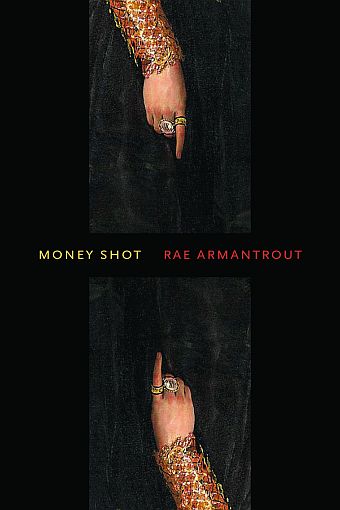 Which current poets or movements in the U.S. do you find most remarkable? And the other way round: What are you missing in the current U.S. poetic scenario?
Which current poets or movements in the U.S. do you find most remarkable? And the other way round: What are you missing in the current U.S. poetic scenario?
Poets have responded in large numbers and in various ways to recent political events in the U.S. such as the internal attack on our civil liberties in the name of a
“war on terror,” the invasion of Iraq, and more recently the recession caused by dishonest and out of control banking practices. My own recent book, Money Shot is only one example. Other poets such as Juliana Spahr, Claudia Rankine, and Joshua Clover have written pretty directly about the situation we find ourselves in. In a way, political poets do something like the Occupy movement’s “mic check.” We attempt to interrupt the ongoing discourse of power and then deliver it( in segments we control) to whoever is listening. The danger for political poetry is that it will become either propaganda, which is too boring to be effective, or that it will be merely ironic, satiric, with the detachment that implies. I think American poetry has tended toward the latter stance, i.e. irony. For one thing, it’s more fun. You can, for instance, just literally quote a politician like Mitt Romney and it comes off as satire! (That’s the sort of poetic “mic check” I was talking about.) But how long can you mock a frightening situation? There are limits surely. That’s a dilemma we haven’t solved.
You teach poetry at university. How do younger generations regard poetry? Which is your main advice to them, and what do you learn from them?
I’m always surprised that poetry classes still fill. With all the distractions modern life offers, some young people still want to write poetry. The bad news, though, is that only a few of them want to read it seriously. In a way, I think the huge interest in rap music has helped reinvigorate an interest in poetry. Of course, rap is very, very different from poetry on the page, but it does require skill. Some students take poetry classes just to blow off steam. It’s good for them to be reminded that a performance, whether in music or on the page, requires practice and skill. I often find myself telling them that they need to be aware of all the ways their words can be taken, not just of the meaning they had in mind. They are often quite surprised to see the variety of different ways their poems can be read. I learn from them that nothing can be taken for granted. History, for instance, must be taught and taught again. I recently had students read a poem with references to the Watergate scandal and President Nixon’s resignation and I found out that, although they were familiar with the names, they really didn’t know what Nixon had actually done. And these are students at a fairly elite school. At first, I tend to find this shocking. Then I remember how long ago those events took place. That was another world in which they have never lived. If we want them to know about it, we have to tell them. They won’t choose to watch documentary films about such things. They are too much involved, and quite naturally, with the pleasures and tribulations of being young.
In Spain, poetry is subjected to ambivalent circumstances. On one hand, there is a wide number of publications, digital or in print, festivals, associations, readings and awards of varied prestige. On the other hand, poetry seems invisible in society, totally irrelevant, just a pastime for freaks or scholars. What is it like in the U.S., and what do you think it should be like?
It is exactly the same in the U.S. I always hear about other countries where it’s different. My husband and I took a trip to Costa Rica recently. We were driving on a country road in a rented car when we saw a tent in a field with a big sign reading, “Poesia y Soda.” We wanted to stop but we couldn’t because there were no lights along this road and it was getting dark. We were in a hurry to reach a highway before night fell so we wouldn’t have a car accident. Anyway, that sight suggested to me that poetry was popular there even among villagers. Two summers ago I participated in a poetry festival in San Luis Potosi, a couple of hours outside Mexico City. The mayor came. Journalists from the capitol came to interview the poets. That would have never happened in the U.S. Not a chance! I think the average American thinks poetry is sentimental and old-fashioned. Men would tend to think it’s for sissies.
You live in San Diego, California, near the Mexican border. In other words, in the ‘periphery’ of the U.S. What implications does this fact have, in terms of frontier experience, immigration, mixing of cultures or other for your poetry?
I used to go to Mexico pretty often, but now, in the paranoid “heightened security” with which we live these days, it is just too difficult to drive or walk across the border. The wait to cross is often three hours! Having grown up here, as I did, means that I studied Spanish in school and that I hear it frequently. I’m happy about that. One of my colleagues is the Mexican novelist and poet Cristina Rivera Garza. And I’m also friends with the Tijuana poet Heriberto Yépez. So the Spanish speaking world is not strange to me. I will be a featured reader at a book fair in Tijuana in May.
We are approaching the end of the interview: how would you like to be read in Spanish? Do you fear that, given the peculiarities of your style, translations may lose much of the original sense of your poems?
Yes, I do worry about the difficulty of translating my poetry. All poetry is difficult to translate, of course. But mine may be particularly so for a number of reasons. For one thing, my poems contain changes in tone or register. That is, I often use what you might call vernacular. I pick up and use the expressions I hear around me, whether from the popular media or the street. In the same poem, I may move from vernacular to a more elevated and traditionally poetic vocabulary, and then perhaps to a discourse based in technical or scientific language. I have heard it said that in Spanish, and also in French, this range of tones is very unusual. It just “isn’t done.” When I was at the festival in San Luis Potosi, I discussed this with some local poets. The poets from the northern border areas, the nortenos, (sorry my keyboard doesn’t have a tilde), had no trouble with this, but they told me it was difficult for the more traditional poets from central Mexico to understand. And I heard something similar from a French translator. I don’t know whether this is true. You would know better than I. Another difficulty in my work is that, since it is so condensed, since my poems and lines are short, every word has to carry maximum significance. For this reason, double meanings are often quite important in the poems –and these always get lost in translation. I’m afraid that if the double meanings are lost and the full range of possible connotations (tonal and otherwise) isn’t available, that the poems will seem kind of flat.
Just one more question. We have spoken of your becoming a poet at College, but not of what poetry meant to you in your childhood. Most poets become so, in one way or another, under the influence of their early readings and experiences with words. Is this so in your case?
Certainly. My mother read poetry to me when I was quite young. We had an encyclopedia for children called Childcraft which included two volumes of poems the editor thought suitable for children. So there were nonsense rhymes by Lewis Carrol but, oddly, there were also a few poems by Emily Dickinson – some of her simpler ones. I got the sounds of poetry into my head before I really knew what the words meant. I’m sure that had a lot to do with my becoming a poet. Then, when I was twelve or thirteen, a teacher gave me an anthology of modern American poetry. What an amazing gift that was! I remember discovering T.S. Eliot and William Carlos Williams I liked Eliot’s poem The Hollow Men because it expresses an almost teenage sense of “angst” (despair?) very well. I started imitating him – and Williams. Of course, I wrote some terrible poems along the way, but eventually, as I matured, those early lessons paid off.
Cover photo: Kevin Walsh, 2010



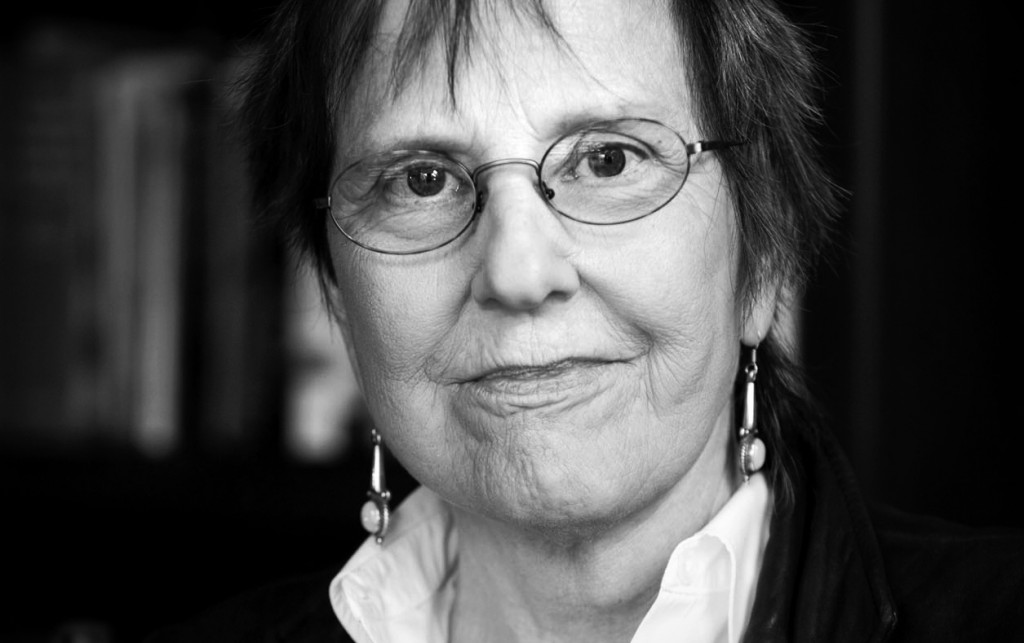
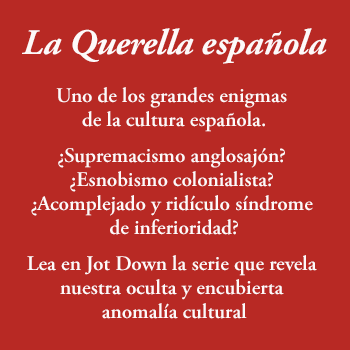


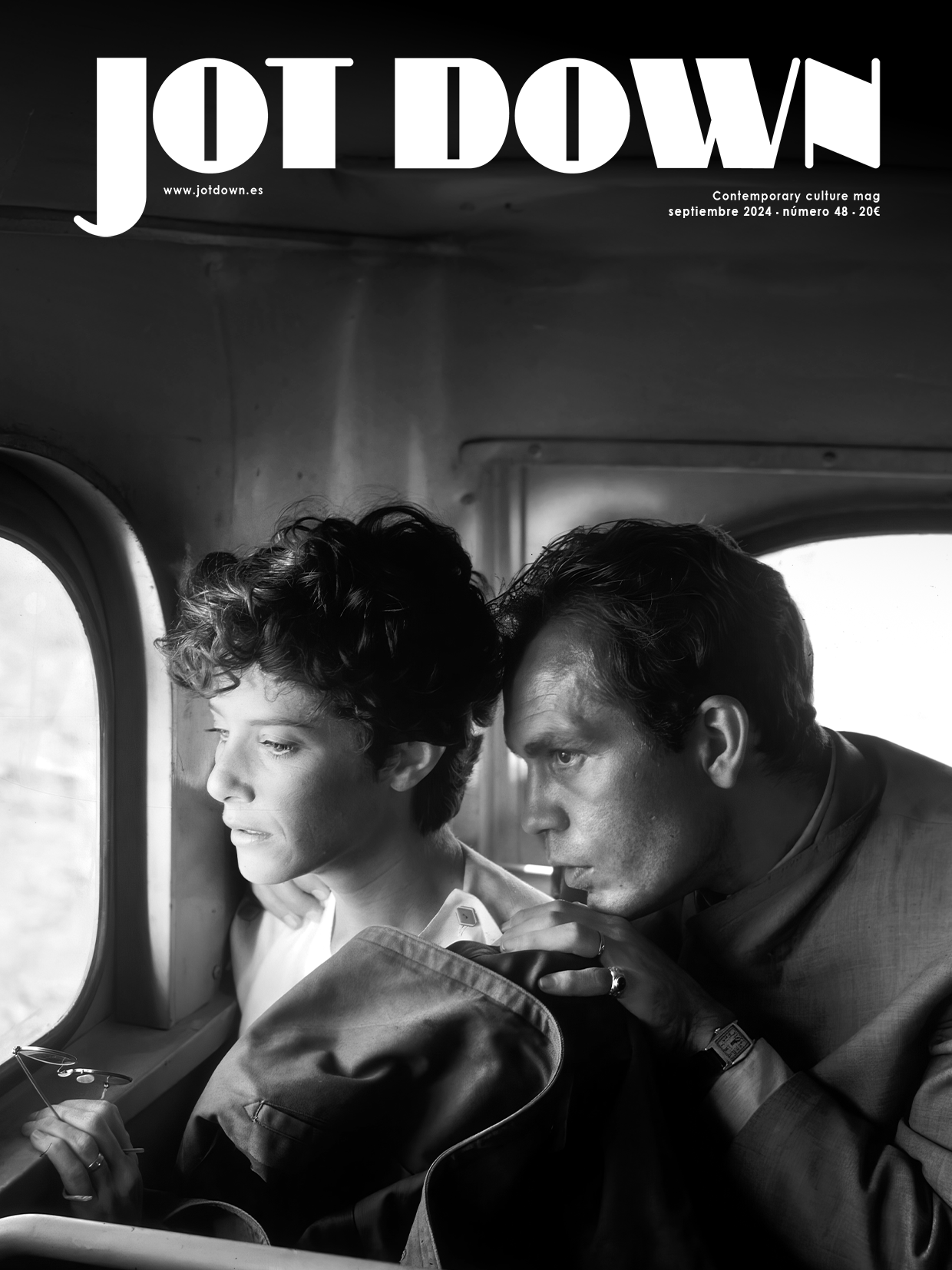

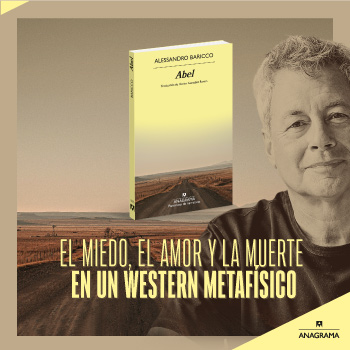
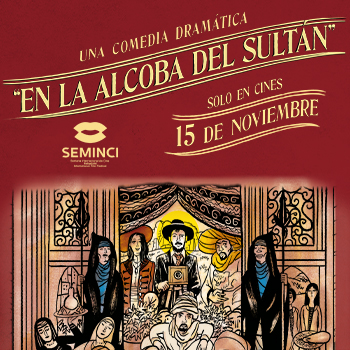

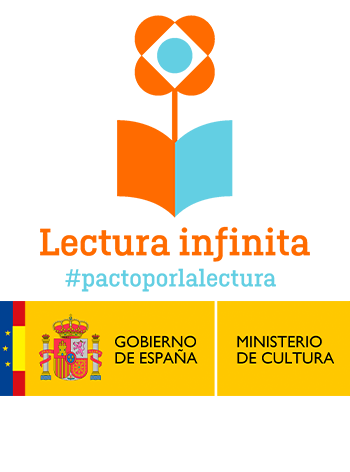
Pingback: Jot Down Cultural Magazine | Rae Armantrout: “Me inquieta tener una experiencia que no se puede articular.”